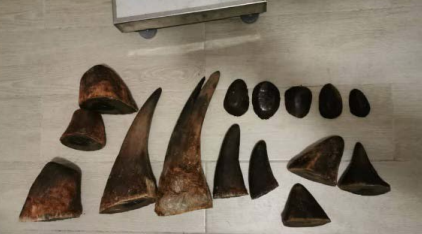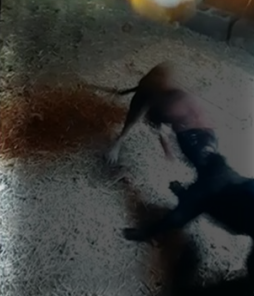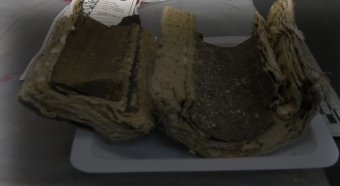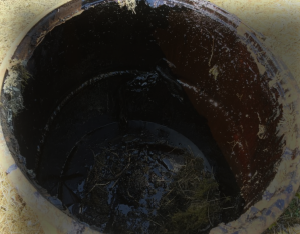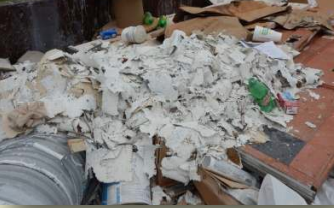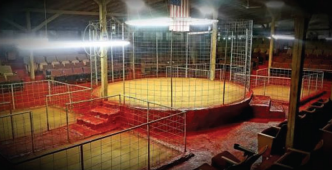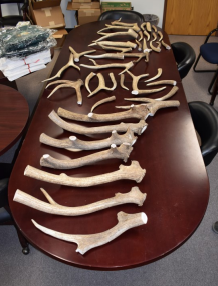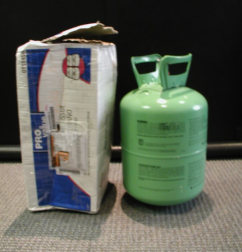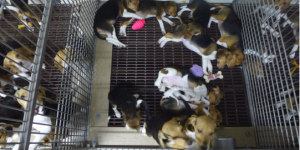Blog Post
Environmental Crimes Bulletin October 2022
In this issue:
- United States v. Jason Lee Wagner, No. 3:22-CR-01754 (W.D. Tex.), ECS Senior Trial Attorneys Todd Gleason and Gary Donner
- United States v. Teo Boon Ching, No. 1:20-CR-00181 (S.D.N.Y.), AUSA Michael Ross Herman
- United States v. Antonio Damon Atkins, No. 3:22-CR-00086 (M.D. La.), ECS Trial Attorney Matt Evans, AUSA Lyman Thornton III, and ECS Law Clerks Amanda Backer and Nate Borelli
- United States v. Trisha D. Meyer, et al., No. 5:22-CR-00235 (C.D. Calif.), AUSA Joseph Johns
- United States v. Calvin Bautista, No. 8:22-CR-00308 (N.D.N.Y.), AUSA Alexander Paul Wentworth-Ping
- United States v. Laddie Dwayne McMillian, et al., No. 1:22-CR-00045 (W.D.N.C.), ECS Senior Trial Attorney Banu Rangarajan, ECS Trial Attorney William Shapiro, Deputy Criminal Chief Don Gast and ECS Law Clerk Amanda Backer
- United States v. Alexander B. Mischenko, No. 2:20-CR-00175 (E.D. Wash.), AUSAs Daniel Hugo Fruchter and Tyler Howard Louis Tornabene, and SAUSA Gwendolyn Russell
- United States v. James D. Withrow, et al., No. 3:21-CR-00109 (D. Alaska), AUSAs Steven Skrocki and Charisse Arce
- United States v. Walker Industries, et al., No. 4:22-CR-00814 (D.S.C.), AUSA Winston Holliday
- United States v. Elite Sky International, Inc., No. 4:22-CR10011 (S.D. Fla.), AUSA Tom Watts-FitzGerald
- United States v. Michael Brown, No. 2:22-mj-01164 (D. N.J.), AUSA Kathleen O’Leary
- United States v. Cruz Alejandro Mercado-Vazquez, No. 2:22-CR-00019; United States v. Oscar Millard Hubbard, et al., No. 6:22 CR-00006; United States v. Ricky Johnson, et al., No. 6:22-CR-00007; United States v. Walter Mitchell, et al., No. 5:22-CR-00021 (E.D. Ky.), AUSAs Kate Smith and Andrea Mattingly-Williams
- United States v. Arturo Ceja, III, No. 2:21-CR-00354 (C.D. Calif.), AUSAs Amanda Bettinelli and Eric Silber
- United States v. Amin Ali, No. 4:22-CR-00015 (N.D. Ga.), AUSA Christopher Huber
- United States v. Joshua Anders Rae, Nos. 1:22-CR00041, 19-CR-00103 (D. Wy.), AUSA Kerry Jacobson
- United States v. David B. Huff, No. 5:22-mj-08001 (N.D. Ohio), AUSA Brad Beeson
- United States v. Robert D. Douglas, No. 3:22-CR-00096 (S.D. Miss.), AUSA Gaines Cleveland, ECS Senior Trial Attorney Jeremy Korzenik, and RCEC Keith Weisinger
- United States v. William C. Easterling, et al., No. 2:21-CR-00455 (M.D. Ala.), ECS Trial Attorney Leigh Rende, ECS Senior Trial Attorney Gary Donner, and ECS Paralegals Sam Goins and John Taylor
- United States v. Jorge Murrillo, et al., No. 1:12-CR-20514 (S.D. Fla.), SAUSA Jodi Mazer and AUSA Tom Watts-FitzGerald
- United States v. Uzi Levi, No. 3:21-CR-00096 (D. Alaska), AUSAs Steve Skrocki and Yunah Chung
United States v. Jason Lee Wagner, No. 3:22-CR-01754 (W.D. Tex.), ECS Senior Trial Attorneys Todd Gleason and Gary Donner
On October 26, 2022, prosecutors charged Jason Lee Wagner with multiple counts of conspiracy, smuggling, and aiding and abetting, for illegally buying and selling endangered reptiles (18 U.S.C. §§ 371, 545, 2).
Wagner and other co-conspirator suppliers and middlemen used social media to offer reptiles for sale and to negotiate their delivery with customers in the United States and Mexico. The conspirators also used international money transfers to provide for "crossing fees," sales and purchase, etc. They then packaged and re-packaged the reptiles for illegal crossings using the U.S. Postal Service and other courier services between Mexico and the United States.
The U.S. Fish and Wildlife Service conducted the investigation.
United States v. Teo Boon Ching, No. 1:20-CR-00181 (S.D.N.Y.), AUSA Michael Ross Herman
On October 7, 2022, prosecutors unsealed an indictment charging Teo Boon Ching, aka Zhang, Dato Sri, with participating in a conspiracy to traffic more than 70 kilograms of rhinoceros horns (valued at approximately $725,000. Ching laundered the proceeds from the rhinoceros horn sales (18 U.S.C. §§ 371, 1956 (a)(3)(B), (c)(7)(G)).
Authorities arrested Ching, a citizen of Malaysia, in Thailand in June 2022. He was extradited to the United States on October 7, 2022. Ching led a transnational criminal enterprise (the Enterprise) based in Asia (with additional operations in Malaysia and Thailand) that illegally trafficked and smuggled rhinoceros horns around the globe. Ching acted as a specialized smuggler, transporting rhinoceros horns from poaching operations in Africa to primarily Asian customers. Ching also shipped rhinoceros horns to the United States.
Between July 2019 and August 2019, Ching met with a confidential source (CS) to negotiate the sale of rhinoceros horns. He sent the CS numerous photographs of rhinoceros horns available for sale. In August 2019, the CS purchased 12 rhinoceros horns from Ching, with instructions from Ching to deposit the cash into numerous Chinese bank accounts to disguise the origins, source, and purposes of the monetary transactions. On August 23, 2019, Ching arranged for his co-conspirators to deliver 12 rhinoceros horn pieces to undercover law enforcement personnel in Bangkok, Thailand. A U.S. Fish and Wildlife Service forensics laboratory examination confirmed that two horn pieces belonged to black rhinoceros with the other 10 pieces from white rhinoceros horns, both endangered species.
The U.S. Fish and Wildlife Service conducted the investigation, with assistance from the Royal Thai Government, and the Embassy of the United States in Bangkok.
United States v. Antonio Damon Atkins, No. 3:22-CR-00086 (M.D. La.), ECS Trial Attorney Matt Evans, AUSA Lyman Thornton III, and ECS Law Clerks Amanda Backer and Nate Borelli
On October 6, 2022, a grand jury returned a 15-count indictment charging Antonio Damon Atkins with conspiracy to participate in an animal fighting venture and possessing animals for participation in an animal fighting venture (18 U.S.C. § 371; 7 U.S.C. § 2156 (b)). Trial is scheduled to begin on January 17, 2023.
Between June and October 2017, Atkins and several others conspired to breed, sell, transport, possess, exhibit and sponsor dogs in fights, as well as gamble on the results. Atkins is one of seven individuals charged as a result of “Operation Nefarious,” a multi-district prosecution.
Among evidence obtained in the investigation, law enforcement recorded telephone calls with Atkins and others via Title III wiretaps and executed a search warrant on his residence. The wiretaps revealed numerous conversations between Atkins and coconspirators discussing dog fighting. While executing the warrant, investigators found 14 pit bull-type dogs and a cache of dogfighting paraphernalia at Atkins’ residence.
The U.S. Department of Agriculture and the Federal Bureau of Investigation conducted the investigation.
United States v. Trisha D. Meyer, et al., No. 5:22-CR-00235 (C.D. Calif.), AUSA Joseph Johns
On October 5, 2022, prosecutors charged Trisha D. Meyer with violating the Endangered Species Act and the Lacey Act for illegally selling a jaguar cub (16 U.S.C. §§ 1538(a)(1)(E), (a)(1)(F), 1540(b)(1), 3372(a)(2)(C), (a)(1),3373(d)(1)(B)). Trial is scheduled to begin on January 3, 2023.
During the spring of 2021, Meyer sold Abdul Rahman a live jaguar cub. Prior to the sale, Meyer posted photographs and videos of herself on Instagram with the cub in California, offering to sell it for $30,000, plus an additional $1,000 for shipment to Rahman, a Texas resident.
Rahman owned the jaguar for a few months before selling it to another buyer for $20,000. The buyer (who lived with a pregnant woman) later decided it unwise to keep the animal in the same house as a newborn child. He took the jaguar to a rescue center in September 2021, which continues to care for the animal.
The United States Fish and Wildlife Service and the California Department of Fish and Wildlife conducted the investigation.
United States v. Calvin Bautista, No. 8:22-CR-00308 (N.D.N.Y.), AUSA Alexander Paul Wentworth-Ping
On October 4, 2022, prosecutors charged Calvin Bautista with smuggling three Burmese pythons into the United States (18 U.S.C. § 545). Trial is scheduled to begin on December 28, 2022.
On July 15, 2008, Bautista took a bus from Canada arriving at the United States Port of Entry in Champlain, New York. When he presented his passport, this triggered an “armed and dangerous” alert (later determined to be a false positive). Upon the alert, inspectors patted Bautista down, sending him to a secondary inspection area pursuant to a border search, discovering several bulges in his groin area. Upon questioning, Bautista admitted he had three pet snakes inside his sweatpants. Customs and Border Patrol agents seized the snakes.
The U.S. Fish and Wildlife Service Office of Law Enforcement and U.S. Customs and Border Protection conducted the investigation.
United States v. Laddie Dwayne McMillian, et al., No. 1:22-CR-00045 (W.D.N.C.), ECS Senior Trial Attorney Banu Rangarajan, ECS Trial Attorney William Shapiro, Deputy Criminal Chief Don Gast and ECS Law Clerk Amanda Backer
On October 31, 2022, Derrick Twitty pleaded guilty to conspiracy to violate the Animal Welfare Act anima fighting prohibitions, and sponsoring and exhibiting an animal in an animal fighting venture (18 U.S.C.§ 371; 7 U.S.C § 2156(b)). Co-defendant Laddie Dwayne McMillian pleaded guilty on October 24, 2022, to similar charges.
Between May 2017 and February 2022, the defendants used more than 45 animals in fights, including a dog named “Slick Rick” that McMillian sponsored in a fight in January 2022. Slick Rick died 20 days later. The evidence included multiple communications between the two and others, through which they shared graphic video of fight events and pictures of the injured dogs.
The U.S. Department of Agriculture Office of Inspector General and the Polk County Sheriff’s Office conducted the investigation.
United States v. Alexander B. Mischenko, No. 2:20-CR-00175 (E.D. Wash.), AUSAs Daniel Hugo Fruchter and Tyler Howard Louis Tornabene, and SAUSA Gwendolyn Russell
On October 18, 2022, Alexander B. Mischenko pleaded guilty to violating the Clean Air Act failure to notify provision for his involvement in an illegal asbestos abatement project (42 U.S.C. § 7413(c)(2)(B)). Sentencing is scheduled for January 24, 2023.
Property management company, Hanson Industries, Inc., owned a building that previously housed a metal production facility. Mischenko owns and operates Buck Creek Sales. In October 2017, Hanson Industries contracted with Mischenko, through Buck Creek Sales, to dismantle the building and salvage the wood. Pursuant to the contract, Hanson paid Mischenko to obtain an asbestos survey and the Clean Air Act permit required to legally demolish the building.
In November 2017, a certified asbestos inspector conducted a survey of the property, finding 2,600 linear feet of friable thermal systems insulation (TSI) in the form of piping insulation containing up to 60% chrysotile asbestos. The following month, Mischenko received the report and knew that a licensed asbestos contractor had to remove this material prior to any renovation activity.
In spite of this knowledge, in January 2018, Mischenko and untrained workers removed the asbestos from the piping, scattering large amounts of dry and friable TSI in the process. They bagged up the asbestos in super sacks that were not leak tight and were not properly labeled. Mischenko also failed to notify the Spokane Regional Clean Air Agency (SRCAA) prior to the renovation work, as required.
In March 2018, SRCAA inspectors observed renovation activity at the property, and the ensuing investigation revealed that a large amount of TSI was left scattered on the floor and the sacks of TSI were being improperly stored in another building. Over the course of several conversations with SRCAA inspectors, Mischenko denied knowing about any asbestos on site. After samples confirmed TSI on the premises, Mischenko finally admitted his responsibility for removing the asbestos and placing it in sacks, without following proper procedure.
The Spokane Regional Clean Air Agency and the U.S. Environmental Protection Agency Criminal Investigation Division conducted the investigation.
United States v. James D. Withrow, et al., No. 3:21-CR-00109 (D. Alaska), AUSAs Steven Skrocki and Charisse Arce
On October 13, 2022, James D. Withrow pleaded guilty to conspiracy to commit depredation against a property of the United States (18 U.S.C. § 371). Sentencing is scheduled for January 18, 2023.
On May 31, 2018, Withrow and Bruce A. Jackson removed 17 55-gallon drums from Jackson’s property in Seward and placed them on a tractor trailer driven by Withrow. The two men then drove to Anchorage. The next day, Withrow drove the tractor trailer off the Seward Highway down a road clearly marked “No Dumping” “No Public Access.” Withrow parked and proceeded to dump 15 of the drums at the Granite Creek Recreation Area in the Chugach National Forest, which is U.S. Forest Service land.
Coincidentally, Forest Service biologists working in the area noticed someone had removed locks from an access gate. They observed Withrow after he dumped 15 of the 17 drums, leaving two on the trailers. Some of the drums leaked, causing approximately $80,000 in damage. The biologists alerted the authorities to investigate further. When questioned by U.S. Forest Service officials, Withrow falsely claimed that he transported the drums to Anchorage, rather than dumping them after Jackson hired him to pick them up.
Jackson was sentenced in August 2022 to complete a four-year term of probation, perform 500 hours of community service, and pay $88,000 in restitution to the U.S. Forest Service. Jackson pleaded guilty to conspiracy to commit depredation against a property of the United States (18 U.S.C. §§ 371, 1361).
The U.S. Forest Service and the U.S. Environmental Protection Agency Criminal Investigation Division conducted the investigation.
United States v. Walker Industries, et al., No. 4:22-CR-00814 (D.S.C.), AUSA Winston Holliday
On October 11, 2022, William Todd Walker and Walker Industries, LLC., pleaded guilty to violating the Clean Air Act (CAA) for their involvement in an illegal demolition project at a Howard Johnson’s Hotel. William Walker pleaded guilty to a CAA negligent endangerment violation (42 U.S.C. § 7413(c)(4)), and Walker Industries pleaded guilty to a CAA National Emissions Standard for Hazardous Pollutants violation (42 U.S.C., § 7413(c)(1)).
In October 2017, the South Carolina Department of Health and Environmental Control (DHEC) received a complaint regarding an asbestos abatement project in process at the Howard Johnson’s hotel located in Florence, South Carolina. Investigators determined that Howard Johnson hired Walker Industries and company owner, Todd Walker, to conduct the demolition project. In July 2017, Walker received an asbestos survey that indicated the presence of asbestos onsite, requiring proper removal. Walker chose to ignore the survey results and failed to employ the proper asbestos abatement procedures. Instead, he directed untrained workers to remove the walls from multiple buildings.
After receiving the complaint, DHEC and the U.S. Environmental Protection Agency conducted several inspections of the property. They found that Walker’s workers used power sanders and hand tools to remove spray-applied texture to the ceilings. They scattered asbestos–contaminated-material (ACM) debris around the site, in some areas about an inch thick. Inspectors found material from the old lobby in a dumpster about ten yards from the structure. Samples from the dumpster exhibited similar properties as samples taken within the structure. Walker and his workers caused a negligent release of asbestos (a hazardous air pollutant) into the air, with the potential for harming workers on site, as well as guests.
The U.S. Environmental Protection Agency Criminal Investigation Division and the South Carolina Department of Health and Environmental Control conducted the investigation.
United States v. Elite Sky International, Inc., No. 4:22-CR10011 (S.D. Fla.), AUSA Tom Watts-FitzGerald
On October 6, 2022, Elite Sky International (ESI) pleaded guilty to violating the Lacey Act for illegally selling spiny lobster and shark fins (16 U.S.C. §§ 3372(d), 3373(d)(3)(A)(i); 18 U.S.C. § 2.). Sentencing is scheduled for February 2, 2023.
ESI engaged in the wholesale export of live spiny lobster and various species of shark fins to markets in China. ESI utilized the services of customs brokers to effectuate the shipments to China, including preparing all necessary airway bills, labels, invoices, and documents to accompany the seafood products.
Between November 2018 and October 2019, ESI could not keep up with customer demand in China for spiny lobster harvested in Florida. In response to the shortfall, ESI purchased spiny lobster from Nicaragua and Belize. When shipped from Florida to China, employees falsified shipping documents for the foreign-origin lobster, identifying the product as "Live Florida Spiny Lobsters, Product of U.S.A." Employees shipped approximately 64,000 pounds of falsely labelled foreign-origin lobster.
The company also acquired various species of shark fins from a commercial fisherman in Florida. Workers falsely labeled these shipments of shark fins to China as spiny lobster or as "Frozen Fish." Between November 2018 and October 2019 airway bills, inventories, and export documents reflect that ESI employees falsely labeled close to 6,000 pounds of shark fins.
The National Oceanic and Atmospheric Administration, the Florida Fish and Wildlife Conservation Commission, and Homeland Security Investigations, conducted the investigation.
United States v. Michael Brown, No. 2:22-mj-01164 (D. N.J.), AUSA Kathleen O’Leary
On October 5, 2022, Michael Brown, a chief engineer of a towing vessel, pleaded guilty to violating the Clean Water Act for negligently discharging marine diesel fuel oil into the Kill Van Kull (33 U.S.C. §§ 1319(c)(1), 1321(b)(3)). Sentencing is scheduled for February 7, 2023.
On September 12, 2016, Brown failed to exercise due care while transferring fuel oil to the towing vessel, causing hundreds of gallons of fuel oil to discharge into the Kill Van Kull. When questioned by the Coast Guard, Brown failed to disclose that the spill originated with the towing vessel. The Kill Van Kull, a tidal straight that connects Newark Bay with Upper New York Bay, is a navigable water of the United States.
The U.S. Coast Guard Investigative Service conducted the investigation.
United States v. Cruz Alejandro Mercado-Vazquez, No. 2:22-CR-00019; United States v. Oscar Millard Hubbard, et al., No. 6:22 CR-00006; United States v. Ricky Johnson, et al., No. 6:22-CR-00007; United States v. Walter Mitchell, et al., No. 5:22-CR-00021 (E.D. Ky.), AUSAs Kate Smith and Andrea Mattingly-Williams
During the spring of 2022, a grand jury charged 19 individuals in four separate indictments with various offenses related to animal fighting and cruelty related to rooster fights.
In the first indictment, prosecutors charged Cruz Alejandro Mercado-Vazquez with attempted bribery and possessing animals for the purpose of using them in an animal fighting venture (18 U.S.C. 666(a); 7 U.S.C. § 2156(a)). On September 9, 2022, Mercado - Vasquez pleaded guilty to attempting to bribe a Mason County Sheriff for offering the Sheriff more than $5,000 for law enforcement protection of an animal fighting venture. Mercado-Vasquez is scheduled for sentencing on January 3, 2023.
In the second indictment, prosecutors charged Rickie Dale Johnson, Jacklyn Rachelle Johnson, and Harold “Fuzzy” Hale, with conspiracy to sponsor and exhibit animals in an animal fighting venture (18 U.S.C. § 371; 7 U.S.C. § 2156(a)). A superseding indictment added Oakley “Whitey” Hatfield, charging him with conspiracy and attending an animal fighting venture.
Between May and July 2021, Rickie Johnson and Jacklyn Johnson regularly operated animal fighting ventures on property they rented from Hale, known as the Bald Rock chicken pit, located in Laurel County. Hatfield assisted Rickie Johnson and Hale with negotiating the pit rental agreement. Prosecutors also charged the following individuals with exhibiting roosters at this venue: Orville D. Asher, Dallas Cope, Hiram B. Creech, Jr., Bradley Cye Rose, and Joshua Westerfield (7 U.S.C. § 2156(a)(1), (f)(1), (b)).
In August 2022, Rickie Johnson and Hale pleaded guilty to conspiring to sponsor animal fighting at Bald Rock; Cope, Rose, and Westerfield pleaded guilty to possessing roosters for the purpose of having them participate in an animal fighting venture; Creech, Jr., pleaded guilty to causing a minor to attend an animal fighting venture; and Asher pleaded guilty to attending an animal fighting venture. Jacklyn Johnson and Whitey Hatfield are scheduled for trial to begin on March 23, 2023.
In the third indictment, Millard Oscar Hubbard, Timothy Sizemore, Beachel Collett, Lester Collett, and Justin Smith, were charged with conspiring to sponsor and exhibit animal fighting ventures. Sizemore also promoted the events (18 U.S.C. § 371; 7 U.S.C. §§ 2156(a)(2),(f)). Between November 2018 and January 2020, the defendants conspired to operate weekly animal fighting ventures at Riverside Game Club, in Manchester, Kentucky, owned and operated by Hubbard. With assistance from Beachel and Lester Collett, Sizemore organized the fights, including: cataloging the entry fees and rooster weights, documenting weapons used for each bird, and tracking wins and losses. Sizemore advertised the fights, including on Facebook, as “fishing tournaments.” Hubbard collected admissions fees and rented trailers to participants.
Sizemore also operated a weekly fight at a separate venue, known as the Blackberry chicken pit, located in Pike County, Kentucky. Sizemore and others held weekly fights at that location between May 2020 and December 2021. A superseding indictment added Perry Hatfield for his role in operating Blackberry. All six of these defendants pleaded guilty on September 23, 2022, to conspiracy to sponsor the animal fighting ventures at Riverside and Blackberry. They are scheduled for sentencing in December 2022.
In the fourth indictment, Walter H. Mitchell, Jerrard McVey, and Linda McVey, are charged with conspiracy to knowingly sponsor and exhibit animals in an animal fighting venture, in connection with “The Valley”, a chicken pit on the border of Nicholas and Fleming Counties (18 U.S.C. § 371). Between June and July 2021, the defendants and others held weekly rooster fights at the Valley, collecting admission fees, and selling concessions and merchandise to dozens of individuals who participated in and attended the animal fighting events. The McVeys organized the participants into various fights, cataloging the entry fees, the weight of the roosters, tracking the weapons used on the animals, arranging the fights, and cataloging the wins and losses.
The U.S. Department of Agriculture Office of Inspector General, the Federal Bureau of Investigation, the Kentucky State Police, and the Indiana Gaming Commission conducted the investigation.
United States v. Arturo Ceja, III, No. 2:21-CR-00354 (C.D. Calif.), AUSAs Amanda Bettinelli and Eric Silber
On October 26, 2022, a court sentenced Arturo Ceja, III, to five months’ incarceration, followed by two years’ supervised release. Ceja pleaded guilty to transporting explosives (namely flash powder) without a license following a massive explosion that injured 17 people and displaced several families (18 U.S.C. § 842(a)(3)(A)).
Between April and June 2021, Ceja purchased commercial-grade fireworks and homemade explosives from Nevada and other states, transporting them to California in U-Haul trucks. Ceja had planned to sell the fireworks throughout his neighborhood, despite not possessing a license or permit to transport explosives. Ceja purchased the commercial-grade fireworks from “Area 51” and “Black Jack Fireworks” (both wholesale dealers located in Pahrump, Nevada) using the customer name “Autron.”
Responding to a tip on June 30, 2021, Los Angeles police found more than 32,000 pounds of fireworks stored at Ceja’s residence, a densely populated residential neighborhood in South Los Angeles. Ceja stored some of the explosives near a gas grill. The bomb squad accidentally blew up an armored containment vehicle (ACV) used to safely detonate explosives, causing an explosion while attempting to destroy the homemade fireworks, including M100s, M3000s, and a mortar covered in tin foil.
The LAPD bomb squad packed nearly 40 pounds of the most volatile and dangerous homemade fireworks into an ACV that was only rated for 33 pounds. Authorities planned to safely detonate the fireworks at the scene (due to their instability) but the ACV exploded, causing debris to rain down on scores of residences, businesses, and vehicles. Authorities transported 17 individuals (which included residents and first responders) to local hospitals. The explosion displaced dozens of people.
The Los Angeles Police Department; the Bureau of Alcohol, Tobacco, Firearms, and Explosives; and the Department of Transportation Office of Inspector General conducted the investigation.
United States v. Amin Ali, No. 4:22-CR-00015 (N.D. Ga.), AUSA Christopher Huber
On October 25, 2022 a court sentenced Amin Ali to two months’ incarceration, followed by one year of supervised release. Ali also will pay a $25,000 fine and $32,597 in restitution. Ali pleaded guilty to violating the Resource Conservation and Recovery Act (RCRA), for illegally storing hazardous waste (42 U.S.C. § 6928(d)(2)(A)).
Ali owned and controlled Goldstar Investment Group, LLC (Goldstar), 7 Days Property Management, Inc., and Rock Springs Farming, LLC (Rock Springs). Goldstar purchased a warehouse, formerly owned by a chemical company. Rock Springs owned a farming property, with several old chicken houses.
In August 2021, Ali arranged for more than 100 drums and other containers of chemicals, including many containing hazardous waste, to be moved from the Goldstar property to the Rock Springs property. Workers left some of the drums in one of the old chicken houses, with others to be placed in an open trench for burial. Some of the drums leaked and spilled onto the surrounding soil.
Neither Ali, Goldstar, or Rock Springs possessed a RCRA permit to treat, store, transport, or dispose of hazardous waste. Subsequent testing of the drums and soil revealed benzene, lead, and/or chromium.
The U.S. Environmental Protection Agency Criminal Investigation Division conducted the investigation.
United States v. Joshua Anders Rae, Nos. 1:22-CR00041, 19-CR-00103 (D. Wy.), AUSA Kerry Jacobson
On October 24, 2022, a court sentenced Joshua Anders Rae to complete a five-year term of probation during which he is banned from all U.S. Forest System lands, National Parks, the National Elk Refuge, and Bureau of Land Management lands. The court revoked Rae’s previous term of probation ordering him to serve 90 days’ probation with 90 days’ home detention for violating probation. A new order for restitution will be forthcoming.
In March 2022, prosecutors charged Rae with a felony violation of the Lacey Act for unlawfully transporting illegally possessed wildlife (shed elk antlers) collected from a closed area (16 U.S.C. §§ 3372(a)(1),(a)(4), 3373(d)(1)(B)). Rae previously pleaded guilty to a misdemeanor Lacey Act violation in 2019 for similar activity and was still under probation.
Large concentrations of elk spend the winter months in the National Elk Refuge. The Refuge is a major national attraction. National Forest lands east of the Refuge are known to contain high concentrations of shed elk antlers due to the presence of wintering elk, both on the National Wildlife Refuge, as well as the adjacent National Forest. Shed antler collection season begins on May 1st, at which point the public is authorized to access the area. Historically, hundreds of people wait in line throughout the night of April 30th, awaiting legal access to the closure area the following morning.
Brown shed elk antlers (grade A) may bring $13-$15 per pound at current open market prices. There has been a growing trend to use shed elk antlers as dog chews, household decorations, and other commercial products.
U.S. Forest Service Officers apprehended Rae in his camp after dark on April 30, 2021, in the Bridger-Teton National Forest in the District of Wyoming, adjacent to the Refuge. Officers seized approximately 44 pounds of elk antlers that Rae sawed into short sections and cached in a rotten log. Rae operates an online company that sells elk antler sections as dog chews. Based on per ounce pricing advertised on the site, the antler sections Rae collected were valued between $2,156 and $2,464.
The U.S. Forest Service conducted the investigation.
United States v. David B. Huff, No. 5:22-mj-08001 (N.D. Ohio), AUSA Brad Beeson
On October 24, 2022, a court sentenced David B. Huff to pay a $4,000 fine, $1,500 in restitution to the U.S. Fish and Wildlife Service, and complete a one-year term of probation for shooting and killing a bald eagle.
Huff owned several fields and farmland, and routinely inspected them for pests and rodents. In October 2021, during one of these inspections, Huff shot and killed a bald eagle with a scoped rifle at a distance of approximately 100 feet. After shooting the eagle, Huff picked up the animal and discarded it in the tree line of a bordering field. Huff pleaded guilty to violating the Bald and Golden Eagle Protection Act (16 U.S.C. § 688(a)).
As part of his sentence, Huff is banned from hunting for a five-year period and authorities will destroy the rifle and ammunition used to commit the crime.
The U.S. Fish and Wildlife Service conducted the investigation, with assistance from the Ohio Department of Natural Resources Division of Wildlife.
United States v. Robert D. Douglas, No. 3:22-CR-00096 (S.D. Miss.), AUSA Gaines Cleveland, ECS Senior Trial Attorney Jeremy Korzenik, and RCEC Keith Weisinger
On October 18, 2022, a court sentenced Robert D. Douglas to pay a $9,500 fine and complete a three-year term of probation. Douglas pleaded guilty to violating the Clean Water Act for illegally discharging industrial waste into the Jackson, Mississippi, sewer system (33 U.S.C. § 1319(c)(1)(B)).
Douglas co-owned a fat and oil recycling business called Gold Coast Commodities, Inc. Between December 2016 and October 2017, Douglas authorized payments on behalf of Gold Coast to transport and dispose of industrial waste at a commercial entity in Jackson. Douglas caused others to transport the waste and discharge it to a facility that was not a designated discharge point for the Jackson Wastewater Treatment System.
The U.S. Environmental Protection Agency Criminal Investigation Division, the Federal Bureau of Investigation, the Brandon Police Department, and the Mississippi Department of Environmental Quality, with assistance from the City of Brandon and the City of Jackson municipal governments, conducted the investigation.
United States v. William C. Easterling, et al., No. 2:21-CR-00455 (M.D. Ala.), ECS Trial Attorney Leigh Rende, ECS Senior Trial Attorney Gary Donner, and ECS Paralegals Sam Goins and John Taylor
On October 13, 2022, a court sentenced Kassi Brook Easterling to complete a two - year term of probation, to include six months’ home confinement. Both Thomas Glyn Williams and Amber Nicole Easterling will complete one-year terms’ of probation. The defendants pleaded guilty to participating in a large-scale gambling and cockfighting operation (18 U.S.C. §§ 371, 1955; 49(a); 7 U.S.C. § 2156; 16 U.S.C. §§ 703, 706, 707). Co-defendants William Colon Easterling, Brent Colon Easterling, William Tyler Easterling, and George William Easterling entered similar pleas.
Between January and June 2018, the defendants maintained a cockfighting arena or “pit” with stadium seating for approximately 150 people and several rings to host cockfights. The Easterlings also operated three adjacent fighting bird-breeding operations, one owned and operated by Big Jim Easterling; one called L&L Gamefarm, owned and operated by Brent and Kassi Easterling; and another known as the Swift Creek Gamefarm, owned and operated by Billy and Tyler Easterling with help from Junior Williams. The defendants bred birds for specific fighting traits, sold and shipped birds from their breeding operations to others to either fight or breed more fighting birds, and promoted the fighting abilities of the birds they bred. Brent and Kassi Easterling also promoted and sold cockfighting weapons from their breeding operation.
The U.S. Department of Agriculture Office of Inspector General and Homeland Security Investigations conducted the investigation.
United States v. Jorge Murrillo, et al., No. 1:12-CR-20514 (S.D. Fla.), SAUSA Jodi Mazer and AUSA Tom Watts-FitzGerald.
On October 5, 2022, a court sentenced Jorge Murrillo to 15 months’ incarceration for conspiring to violate the Clean Air Act (CAA) by importing more than 300,000 kilograms of illegal hydrochlorofluorocarbon-22 (HCFC-22) from China valued at $1.5 million (18 U.S.C. §§ 371, 545).
HCFC-22 refrigerant is widely used for residential heat pump and air-conditioning systems. Authorities have scheduled HCFC-22 for phase out, with a limited number of individuals and companies allowed to legally import HCFC 22 via an “Unexpended Consumption Allowance” or UCAs.
Between June and August 2007, Murrillo smuggled large quantities of HCFC-22 into the United States to sell on the black market. Murrillo and co-defendant, Norberto Guada, negotiated with a Chinese manufacturer to purchase large quantities and imported the shipments using South Florida ports. At no point did Murrillo, his companies, or associates hold UCAs that would have allowed them to legally import this refrigerant. In total, Murrillo participated in smuggling 309,536 kilograms of HCFC-22 with a market value of $1,525,670, into the United States. Murrillo resided outside the United States from the time of his indictment in 2012 until his arrest in Miami in May 2022.
Guada was sentenced in December 2012, to six months’ incarceration and six months’ home confinement, followed by 18 months’ of supervised release. Guada also paid a $3,000 fine.
The U.S. Environmental Protection Agency Criminal Investigation Division, and Homeland Security Investigations conducted the investigation, with assistance from Customs and Border Protection.
United States v. Uzi Levi, No. 3:21-CR-00096 (D. Alaska), AUSAs Steve Skrocki and Yunah Chung
On September 30, 2022, a court sentenced Uzi Levi to pay a $4,000 fine and complete a two-year term of probation after pleading guilty to violating the Marine Mammal Protection Act (MMPA) (16 U.S.C. §§ 1372(a)(4)(B), 1375(b)). The MMPA prohibits any non-Alaskan native from transporting, purchasing, selling, exporting, or offering to purchase, sell, or export any marine mammal or marine mammal product for any purpose other than public display, scientific research, or enhancing the survival of a species.
Levi owns a rental car lot. In June 2020, a U.S. Fish and Wildlife agent observed an Alaskan Native man carrying a two-tusked, non-handicrafted walrus head mount into Levi’s business and leave without it. A few weeks later, an undercover agent (UA) visited the car lot inquiring about renting a vehicle. He asked the desk clerk if he could rent a vehicle using barter or trade. The employee called Levi and handed the phone to the UA. Over the next eight months, Levi and the UA exchanged phone calls and texts about purchasing non-handicrafted walrus ivory. Levi (a non-Alaskan native) ultimately bought six non-handicrafted Pacific walrus tusks from the agent in July 2020, and one non-handicrafted, three tusked walrus head mount in September 2020.
The U.S. Fish and Wildlife Service conducted the investigation.
Environmental Crimes Bulletin
Updated December 6, 2023

 U.S. Department
of Justice
U.S. Department
of Justice
